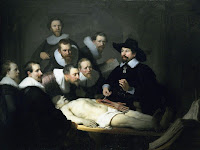"The arc of the moral universe is long, but it bends toward justice."
Martin Luther King Jr.
Take a moment and imagine yourself in a comfortable position. Perhaps it is a winter day and you have decided to engulf yourself with warm blankets and enjoy a mug full of hot cocoa to hide from the snow. It is not difficult to find comfort in this position, but you realize that it could be better. You see reports on the television of a distant tropical island that remains unconquered by the chilling cold and blankets of snow. You realize that you would be much more comfortable if you were there rather than remaining here, but for you to reach this comfort it would require unbundling from your current comfortable position. Is facing a temporary discomfort worth the higher level of comfort you may receive in this new location?
Many brave souls in the Renaissance and Reformation had to answer similar, yet more impactful questions. These stages of world history ushered in the discovery of many brave new worlds, be they physical, intellectual, artistic, or spiritual. My fellow classmates and I concluded that these worlds were discovered by those who were willing to leave their comfortable positions in pursuit of new ones.
 |
| Renaissance artists broke tradition to study cadavers to better understand the human body. |
Renaissance humanists pictured God saying to man, "I have placed you at the very center of the world, so that from that vantage point you may with greater ease glance round about you on all that the world contains" (Pico de Mirandoa). European explorers, Renaissance thinkers, and Reformation leaders used this vantage point to realize that the world could be better. Explorers and colonists discovered that there was more to the world than originally thought, and uncomfortably sailed stormy seas and faced severe conditions to build new civilizations based off of hopes of economic mobility or religious freedom. Many great thinkers realized humanity in itself is beautiful and acted against common tradition to prove their points. Reformation leaders recognized that God is closer to man than they had previously supposed and were persecuted for practicing what they believed in.
 |
| Reformation leaders being burnt for their new & different ideas |
All of these extraordinary people needed to take a step into discomfort before they could reach the brave new worlds they were hoping to find. Many others around them criticized and persecuted those who were in pursuit of these new worlds because they themselves were unwilling to give up their positions of comfort in pursuit of a newer, and possibly better, world.
Today, in order for us to discover our brave new worlds, we must be able to walk forward into discomfort as well. History adores those who remove themselves from comfort and have the courage to stand for, experiment, or discover what they know is right, regardless of the commonly held beliefs or traditions. Our brave new world remains to be discovered, we only need to be bold enough to take the first step into discomfort.

No comments:
Post a Comment